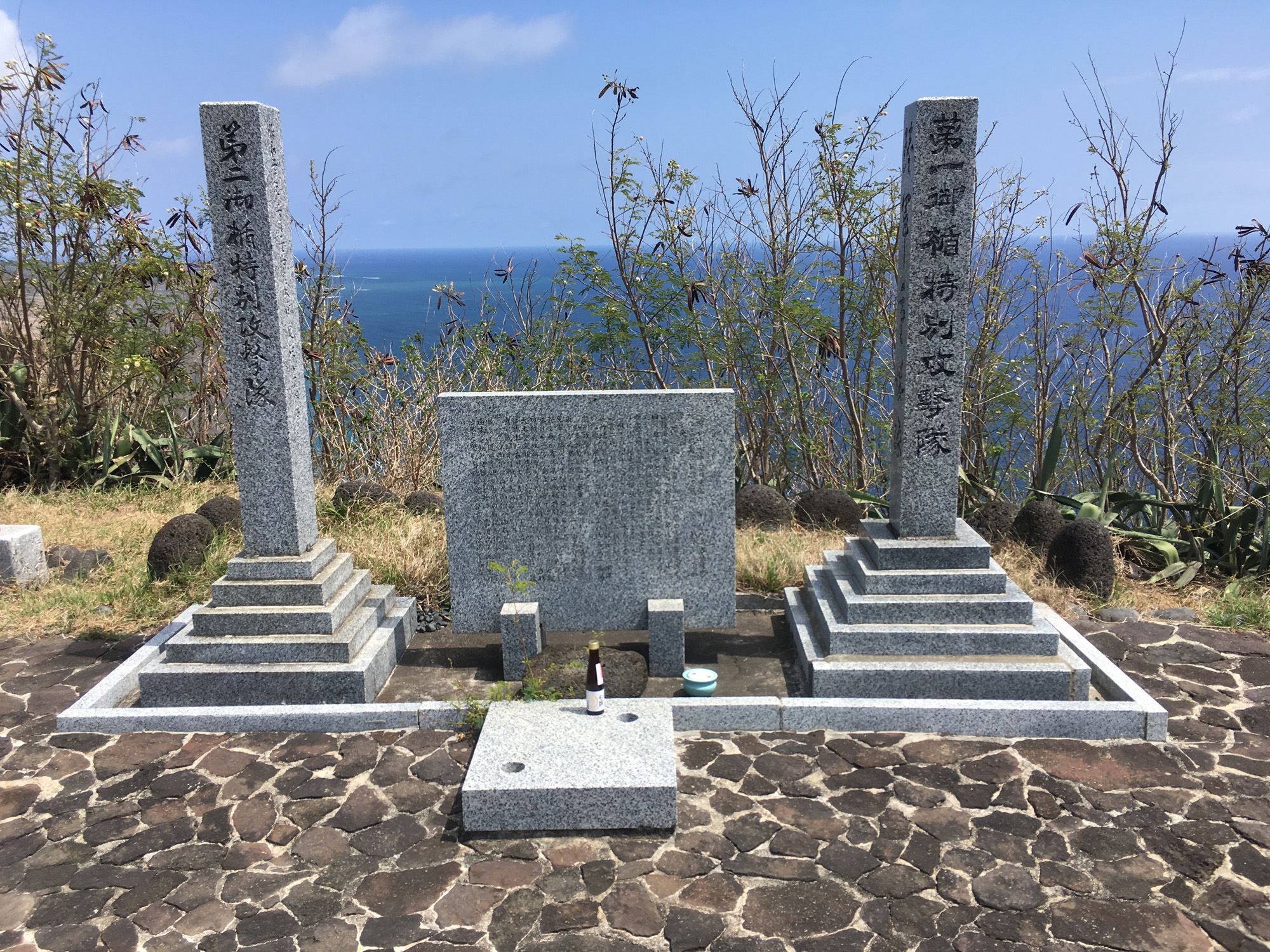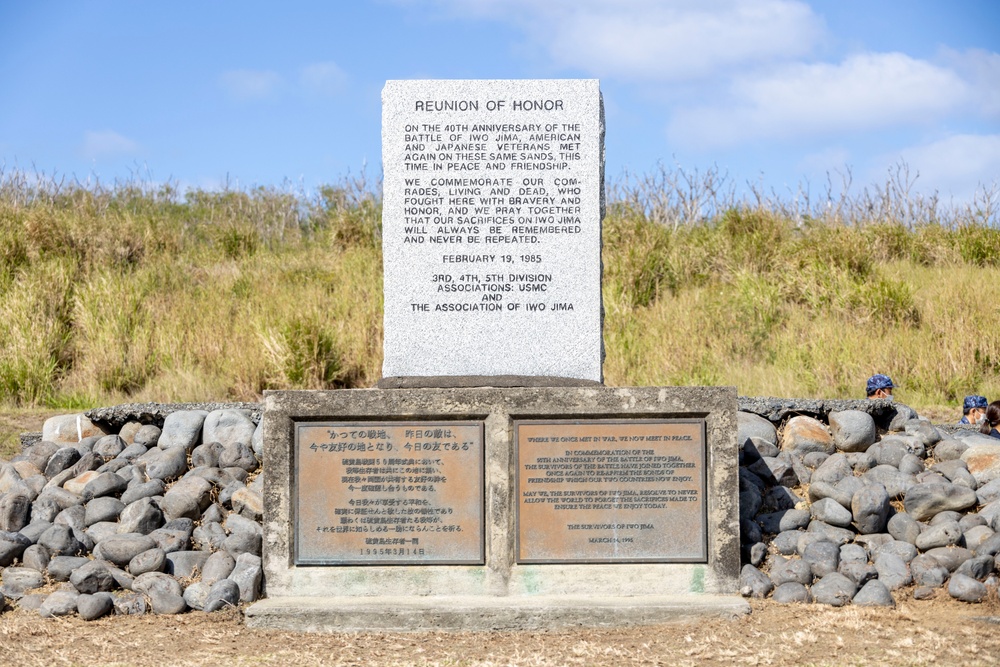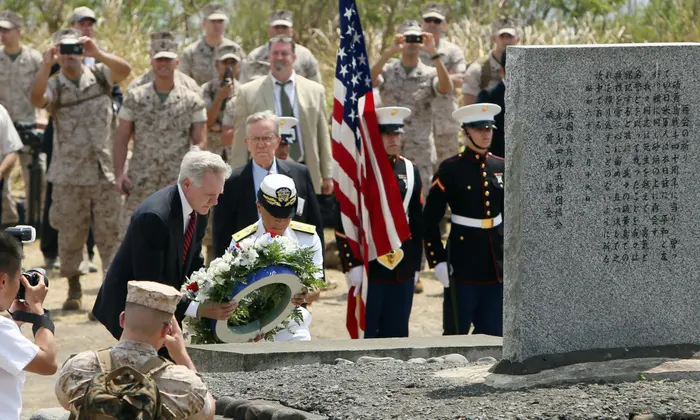Enemies to Allies

"U.S.-Japan Mutual Security Treaty"
Council of Foreign Relations
"Signed in 1951... the U.S.-Japan Mutual Security Treaty was a ten-year, renewable agreement that outlined how Japan... would allow U.S. forces to remain on its soil."
"Battle of Iwo Jima Approaches 70", Kadena Air Base
"It has always been my conviction that Japan... must assume full responsibility of safeguarding that liberty and independence... We are very glad, therefore, that America, realizing that security of Japan means the security of the Pacific and of the world, consented to provide us the necessary protection by retaining her armed forces".
- Japan Prime Minister Shigeru Yoshida

"Prime Minister Yoshida Shigeru signs the bilateral security treaty with the United States" | The Asia-Pacific Journal
After the treaty, the U.S. and Japan began forming a powerful alliance after being enemies. Iwo Jima became a significant part of this alliance.
Bittersweet Grounds
"It's been nearly 70 years since the battle took place on the island, now named Iwo To. Much of the island is now a memorial site".
"Battle of Iwo Jima Approaches 70", Kadena Air Base
"Every year since 1985... both Japanese and American participants in the war, or their surviving family members, have attended a joint service for the war dead on Iwo Jima."
The Diplomat
"The Reunion of Honor Ceremony is a testament to the strength of the U.S.-Japanese Alliance and the importance of our partnership."
United States Marine Corps

Japanese Memorial on Iwo Jima | The Japan Times

“Never has our partnership been more important, and never has it been better than it is today.”
- Major General Eric Austin
"In this sense, Iwo Jima is the invisible symbol of reconciliation between Japan and the U.S."
The Diplomat
“The bitterest of enemies then are now the closest of friends. We have made a common cause, we need each other, and we have come a long way indeed. The black sand and rock of this sulfur island bear a testimony to the resolve of both our countries."
- Major General Eric Austin

"Reunion of Honor" monument | American War Memorials Overseas

"Ray Mabus, US navy secretary, lays a wreath during a war commemoration ceremony on Iwo Jima" | The Guardian
Americans and Japanese now feel empathy for each other because of their shared struggles during the war. Therefore, Iwo Jima and the memorials became a pivotal turning point in restoring American and Japanese relations because the memorials symbolize two sides coming together in grief, but also in humility.
